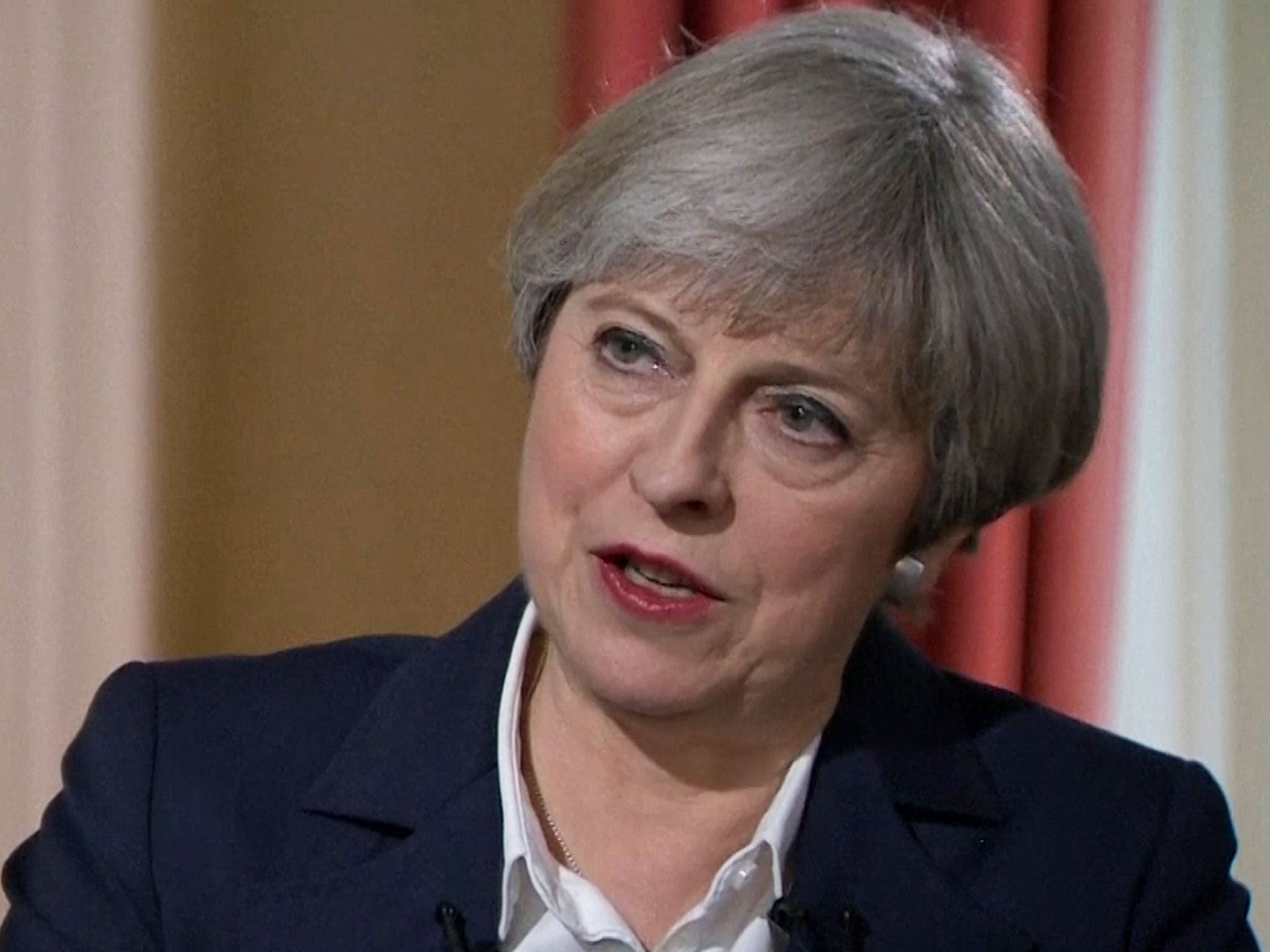Theresa May admits freedom of movement could continue after Brexit
UK could also continue to fall under the jurisdiction of the European Court of Justice after March 2019, PM says

Your support helps us to tell the story
From reproductive rights to climate change to Big Tech, The Independent is on the ground when the story is developing. Whether it's investigating the financials of Elon Musk's pro-Trump PAC or producing our latest documentary, 'The A Word', which shines a light on the American women fighting for reproductive rights, we know how important it is to parse out the facts from the messaging.
At such a critical moment in US history, we need reporters on the ground. Your donation allows us to keep sending journalists to speak to both sides of the story.
The Independent is trusted by Americans across the entire political spectrum. And unlike many other quality news outlets, we choose not to lock Americans out of our reporting and analysis with paywalls. We believe quality journalism should be available to everyone, paid for by those who can afford it.
Your support makes all the difference.Theresa May has admitted freedom of movement could continue in some form after Britain has officially left the EU.
The Prime Minister said it might go on as the UK puts in place new arrangements during a transitional period.
Ms May was speaking at the end of a momentous day in British politics when the UK formally notified Brussels of its intention to leave the bloc.
She also said the “implementation phase” of the Brexit negotiation could see the UK continue to fall under the jurisdiction of the European Court of Justice past the official cut-off date of March 2019.
“We want to make sure that we are ending the jurisdiction of the European court of justice and that we are able to control movement of people coming from the EU,” the PM said during a special BBC programme on Brexit.
“We want to have the agreements done in two years.”
But she added: “There may then be a period in which we are implementing those arrangements.
“If there are different visa arrangements that need to be put in place, the government here and the government elsewhere will have to have their systems working so that it can operate.
“So there may be a period where we have got to implement the decisions that have been taken.”
Her admission that freedom of movement between the UK and the rest of the EU is likely continue after the two-year negotiation will anger the right-wing of the Tory party who had hoped for all ties with Brussels to cut immediately after Brexit.
But it will be seen as an acknowledgement of the complexity of the deal that needs to be struck, which has been repeatedly downplayed by Brexiteers.
Ms May has said the UK wants a "deep and special partnership" with the future EU of 27, but that Britain should regain control of its borders, leave the single market and escape the jurisdiction of the European Court of Justice.
A draft resolution expected to be approved by the European Parliament on 5 April proposes a three-year time limit for a transitional period to thrash out an agreement following the likely Brexit date in 2019.
That could leave British citizens to enjoy another five years of unrestricted access to the rest of the continent.
Join our commenting forum
Join thought-provoking conversations, follow other Independent readers and see their replies
Comments